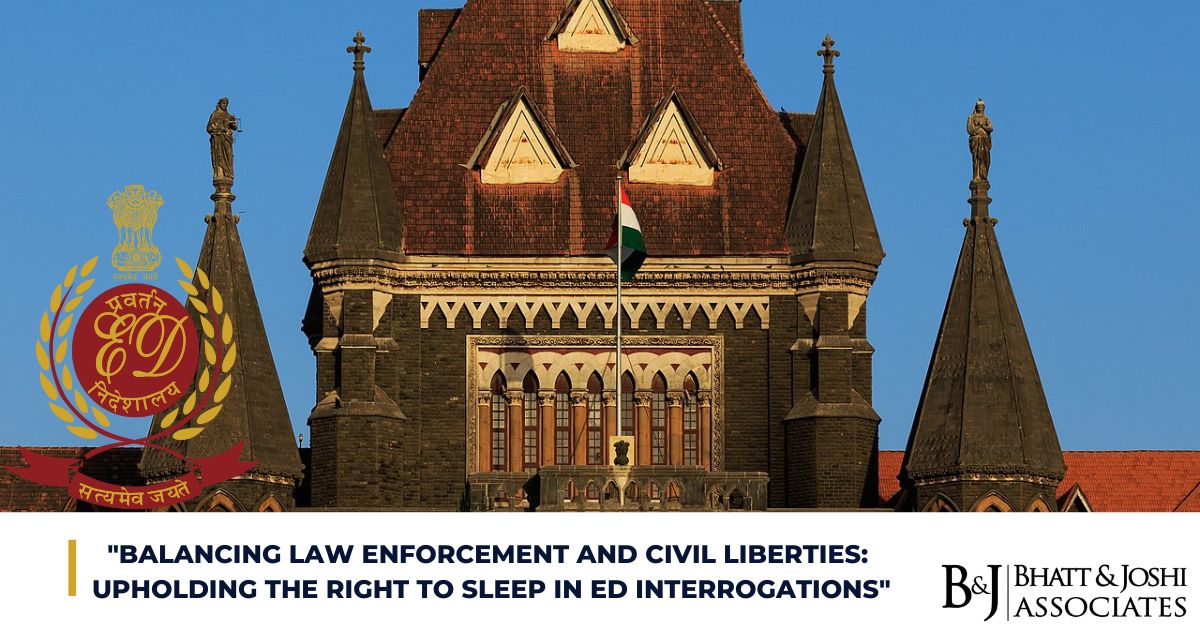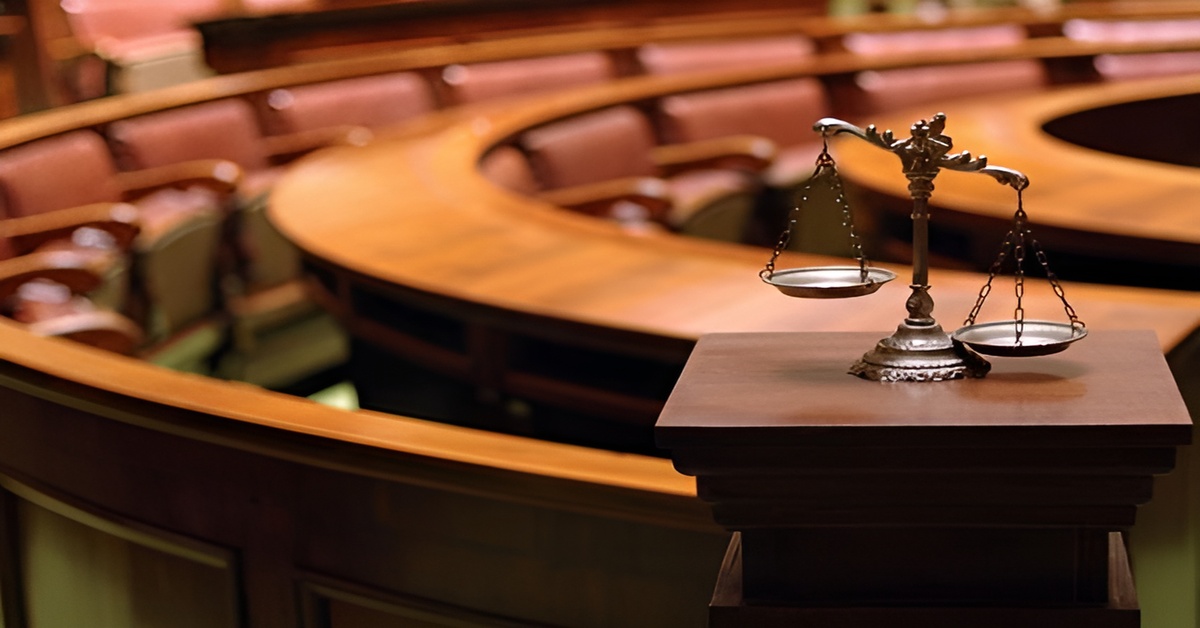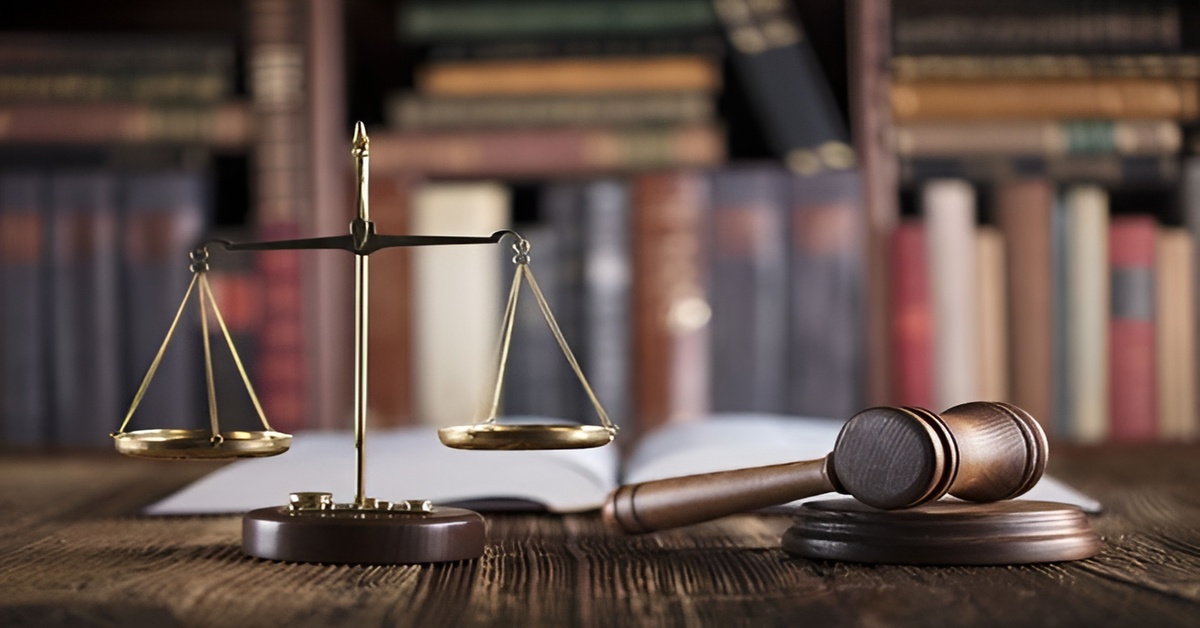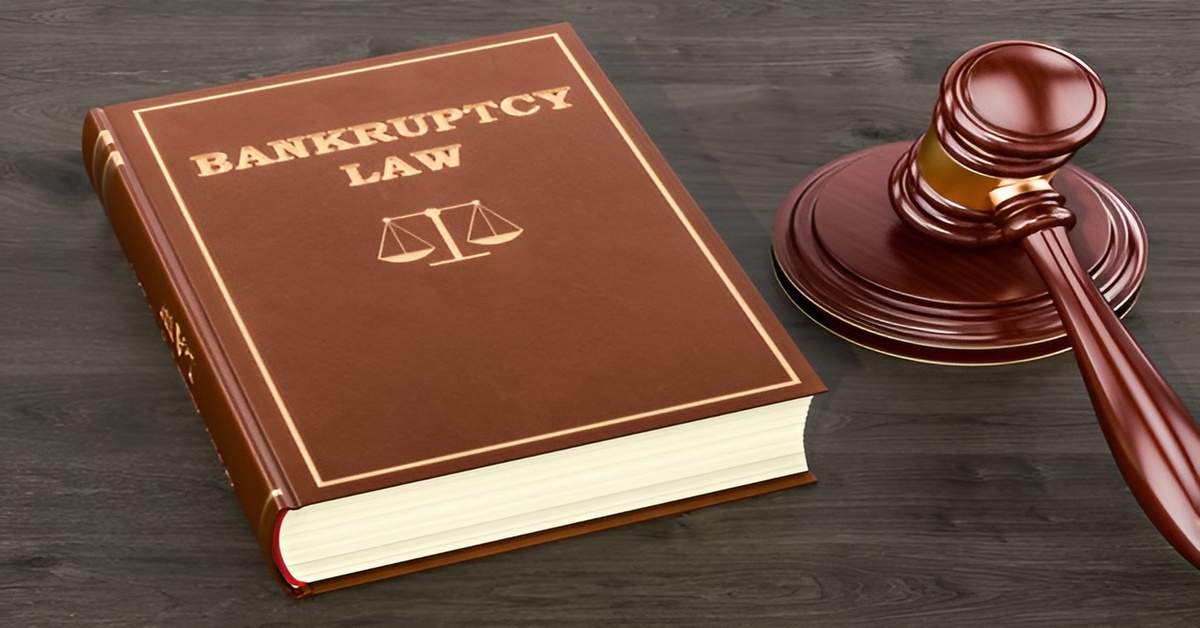Introduction: The Bombay High Court’s Landmark Judgment
In a historic move that reverberates across the Indian legal landscape, the Bombay High Court, renowned for its age-old legacy and esteemed reputation, delivered a resounding judgment in the case of Ram Issrani vs Enforcement Directorate & Ors. This landmark ruling, pronounced on April 15, 2024, following a meticulous review initiated on March 6, 2024, unequivocally upholds the sanctity of an individual’s right to sleep. The judgment, authored by the esteemed justices, Hon’ble Ms Justice Revati Mohite Dere and Hon’ble Ms Justice Revati Mohite Dere, addresses the contentious issue of interrogations and statement recordings conducted by the Enforcement Directorate (ED) at unearthly hours. This paper delves into the intricacies of the case, explores the legal nuances underpinning the High Court’s decision, and examines the broader implications of this seminal ruling.
Contextualizing the Case: Ram Issrani’s Petition Against ED
The genesis of the case lies in a petition filed by Ram Issrani, a 64-year-old businessman embroiled in an alleged bank fraud case, against the Enforcement Directorate. Mr. Issrani accuses the ED of unlawfully arresting him and subjecting him to interrogation sessions that infringe upon his fundamental rights. The petition highlights the ED’s practice of summoning individuals, including Mr. Issrani, for questioning at ungodly hours, resulting in sleep deprivation and undue psychological stress. This sets the stage for a legal battle that underscores the delicate balance between law enforcement imperatives and individual liberties, particularly the right to sleep.
High Court’s Ruling: Upholding the Right to Sleep as a Fundamental Right
In its seminal judgment, the Bombay High Court leaves no room for ambiguity as it unequivocally asserts the primacy of an individual’s right to sleep. The Court, cognizant of the ED’s investigative prerogatives, nevertheless condemns the agency’s disregard for basic human rights in its pursuit of justice. Led by the Hon’ble Ms Justice Revati Mohite Dere and Hon’ble Ms Justice Revati Mohite Dere, the Court issues a clarion call for adherence to ethical and legal standards in conducting interrogations and recording statements. By directing the ED to formulate guidelines specifying appropriate timings for such activities, the Court strikes a delicate balance between law enforcement exigencies and individual rights, thereby setting a significant precedent in jurisprudence.
Legal Analysis: Interrogations and Fundamental Rights
A meticulous legal analysis underpins the High Court’s judgment, drawing upon constitutional provisions, statutory laws, and judicial precedents to substantiate its stance. The Court invokes Article 21 of the Constitution, which enshrines the right to life and personal liberty, including the right to sleep. Additionally, the Court delves into the provisions of the Prevention of Money Laundering Act (PMLA) and the Code of Criminal Procedure (CrPC), elucidating the distinctions between ED investigations and conventional criminal proceedings. This nuanced legal scrutiny underscores the gravity of the issue at hand and underscores the imperative for agencies like the ED to operate within the bounds of the law while respecting individual rights.
Exploring Ramifications: Precedents in Safeguarding the Right to Sleep
Drawing upon a rich tapestry of legal precedents and jurisprudence, the Bombay High Court buttresses its judgment with authoritative references that underscore the importance of protecting fundamental rights. Notably, the Court cites the Supreme Court’s observations in the Ramlila Maidan Incident case, wherein the right to sleep was equated with a fundamental human requirement essential for maintaining physical and mental well-being. By invoking such precedents, the Court not only reinforces its own ruling but also contributes to the evolving jurisprudence surrounding individual rights and law enforcement practices in India.
Implications of the Ruling: Balancing Law Enforcement and Civil Liberties
The ramifications of the Bombay High Court’s judgment extend far beyond the confines of the present case, heralding a new era in the intersection of law enforcement imperatives and civil liberties. By mandating the formulation of guidelines for conducting interrogations and recording statements, the Court sends a clear message to investigative agencies nationwide. It underscores the imperative for such agencies to operate within the parameters of the law while upholding the dignity and rights of individuals. Moreover, the ruling serves as a wake-up call for policymakers and legislators to revisit existing laws and procedures governing investigative practices, with a view towards striking a more equitable balance between law enforcement exigencies and fundamental rights.
Ensuring Compliance: The Road Ahead for the ED
As the dust settles on the Bombay High Court’s landmark judgment, the onus now falls squarely on the Enforcement Directorate to ensure compliance with the directives issued by the Court. This entails not only formulating comprehensive guidelines regarding the timing of interrogations and statement recordings but also fostering a culture of respect for fundamental rights within the agency. Training programs, awareness campaigns, and internal mechanisms for monitoring and accountability will be essential to institutionalize the Court’s directives and prevent future violations of individual rights. Moreover, robust oversight mechanisms, including judicial review and parliamentary scrutiny, will be crucial to safeguarding the rights and liberties of all citizens in the realm of law enforcement.
Conclusion: Upholding Justice and Dignity
In conclusion, the Bombay High Court’s judgment in the case of Ram Issrani vs Enforcement Directorate & Ors stands as a testament to the judiciary’s unwavering commitment to upholding justice, dignity, and fundamental rights. By affirming the right to sleep as sacrosanct and mandating stringent safeguards against its infringement, the Court has not only rendered justice to the petitioner but also set a significant precedent for future cases. As India marches towards a more just and equitable society, it is imperative for all stakeholders, including law enforcement agencies, policymakers, and citizens, to heed the Court’s clarion call for upholding the rule of law and respecting individual liberties. Only through such collective endeavors can we truly realize the vision of a nation where justice, fairness, and dignity prevail for all.














